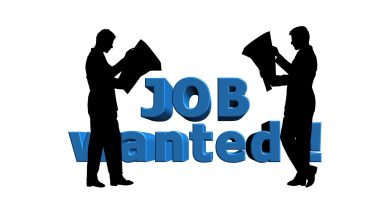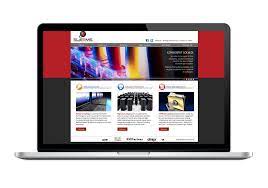
Competencies framework for hr professionals
Steven Darien is the CEO and chairman of Something like the Cabot Advisory Panel, LLC in New Jersey. Management of human resources expert and consultant. The Association for Human Resources Management (SHRM), which uses the Competency Framework to enhance the HR professional, is another organization that Steven Darien serves. Through a set of nine skills, the SHRM core Competency Framework fosters professional growth.
- Conversation.
To effectively convey information, HR executives must have good communication skills, from written and oral communications to attentive learning and persuasion. Delivering criticism and participating in diplomatic efforts are made easier with excellent communication skills. Facilitating conversations between employers and employees is the primary responsibility of the average HR professional. A human resources manager won’t be successful if one can’t communicate effectively. Effective information transfer requires both written and oral communication abilities.
An excellent capacity to resolve conflicts is one communication skill that provides individuals an advantage. Despite the friendliest environments, issues that need a patient ear, a critical eye, and a helping hand to resolve may occur. When seeking compromises and maintaining focus, this unique ability is priceless.
- Management of Relationships.
The organization is aided by the capacity to control interpersonal relationships. Positive community connections, effective networking, and collaboration are all fostered through relationship management abilities. Additionally, it aids in enhancing consumer trust.
- Ethical Conduct.
Respect for moral standards and guiding principles promotes responsibility and builds a feeling of integrity among employees, which promotes professionalism.
- HR Information.
A competent HR leader is well-versed in efficient HR administration concepts, procedures, and duties. Workforce planning, HR technology, risks, and strategic enterprise management are crucial domains of expertise. Knowledge of Human Resources The information available to job searchers nowadays is more than ever. The top Hr managers must be ready to meet these knowledgeable applicants and share their unique industry knowledge.
Everything else you will accomplish in the human resource department will be based on your understanding of why and how individuals join and leave organizations. The best HR managers are constantly aware of “the broad picture” of how HR practices connect to a profitable organization. To support the goals of both workers and employers, one must have more understanding in this field than anybody else. Since talent acquisition and retention are both critical components of HR management
- Enterprises savviness.
Enterprises’ insight is the capacity to comprehend and use knowledge to advance an enterprise’s strategic goals. Enterprises-savvy HR practitioners exhibit financial intelligence, tactical flexibility, and other operational concepts.
- Critical Analysis.
A crucial aspect of Hrm is the interpretation of data to provide recommendations and choices for company actions. Making appropriate judgments and well-informed conclusions needs critical thinking and commitment to research procedures. Indeed, reflective practice empowers workers to develop solutions to issues and plans of action that improve their performance at work. 1 Any career may benefit from critical thinking since it:
- Take in knowledge without prejudice
- Examine fundamental aspects of communication and setting
- Resolve difficult issues
- Develop imaginative but practical solutions.
In particular, HR professionals should frequently balance difficult circumstances and spend sufficient time deliberately using a blend of rigid procedures and creative problem-solving. HR executives must proactively create an atmosphere where everyone can collaborate to improve their enterprises since workers have various experiences and backgrounds.
- Effectiveness across cultures.
Regularly, HR professionals engage with individuals from all backgrounds; therefore, they must consider the opinions of all sides.
- Management and navigation.
Leading projects and assisting enterprises under challenging times are two things that effective HR practitioners do.
- Contemplation.
HR specialists provide direction to organizational stakeholders by using their analytical thinking, project & individual management, and problem-solving abilities.
Critical competency framework for hr professionals and Skills to Advance Your future career
- An overlap of skills and abilities is needed to perform the duties of managing human resources. Understanding and honing these talents is essential to success if you desire to stand out in today’s cutthroat employment environment. The top six critical skills for HR practitioners are listed below.
- A dedication to ongoing learning in HR. Today’s corporate environment is complicated and constantly changing, and the capacity to digest and comprehend the changing nature of the HR industry requires self-motivation.
- Being open to fresh ideas from any source can help you advance your career. Have you shown that you’re dedicated to lifelong learning through conferences, other HR professionals, or graduate studies?
- The ability to transform well-planned market trends & data into valuable insights lies with Hr practitioners who have never stopped learning.
- A Human Resources Approach That Is Ethical. One cannot stress the value of ethics as an essential talent in human resources. The ethical issues that HR professionals confront daily range from handling sensitive employee data to defend their companies’ reputations. Adopting an unyielding and uncompromising moral commitment helps secure your firm and attract top personnel and cultivates an environment of loyalty and trust.
- Genuine human concern is a necessary component of ethics. You stand out from others who follow the rules if you have empathy for difficult circumstances and “real life.”
- Law tends to codify specific ethical standards. In the field of human resources, maintaining legal compliance with your organization’s rules and procedures is essential. Because of the harm it will prevent and promote a better, more varied workplace, avoiding discrimination based on ethnic origin, disabilities, religious belief, and a variety of other criteria is crucial.
As part of a substantial cultural transition, laws are continually altering, sometimes gradually. Knowing the latest national news, fashions, and legal developments is crucial since unawareness of the law is never a good defense. Naturally, following the law also safeguards the enterprises and their executives.
A juggling act is HR management. The better you get current with what you require to accomplish and have time for the things you want, the more organized you will be. Don’t believe the myth that organization is something you have or don’t. Knowing where you work and creating a daily pattern by repeating a few actions might help you become more organized.
Apart from that, if you are interested to know about A Description of HR Consultancy then visit our Business category.




